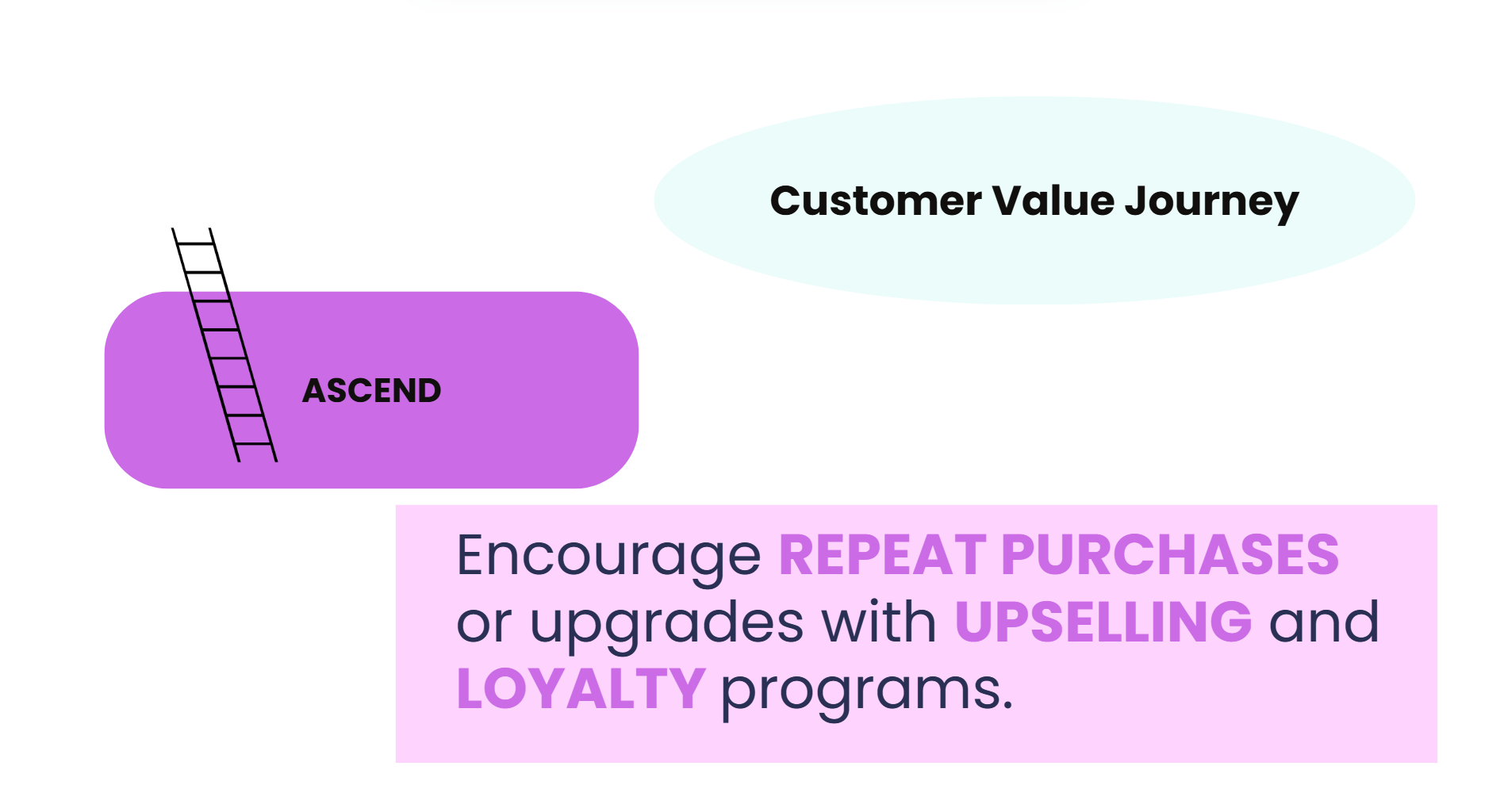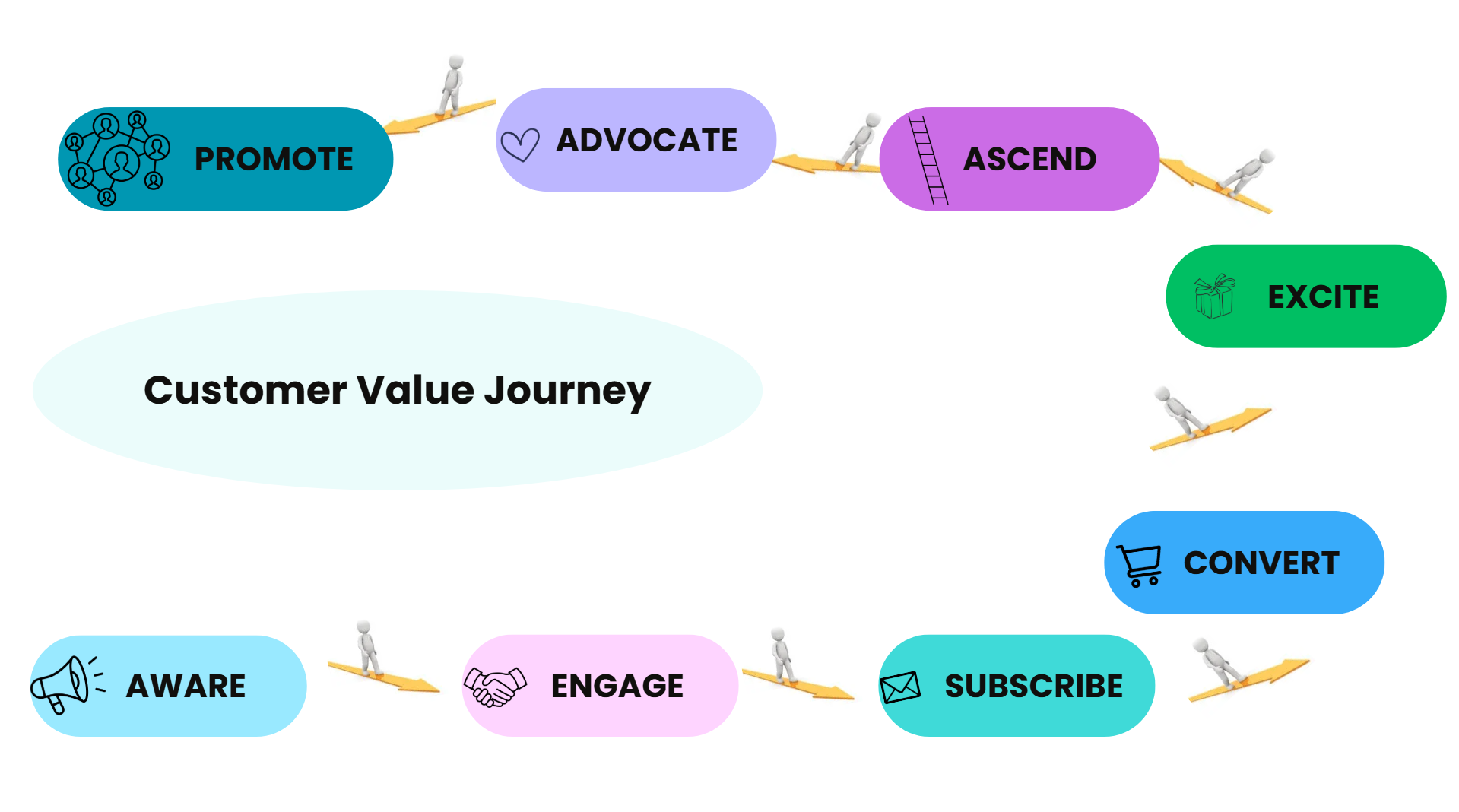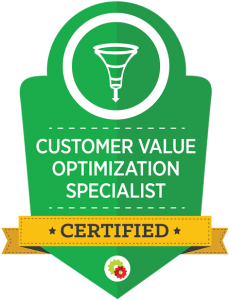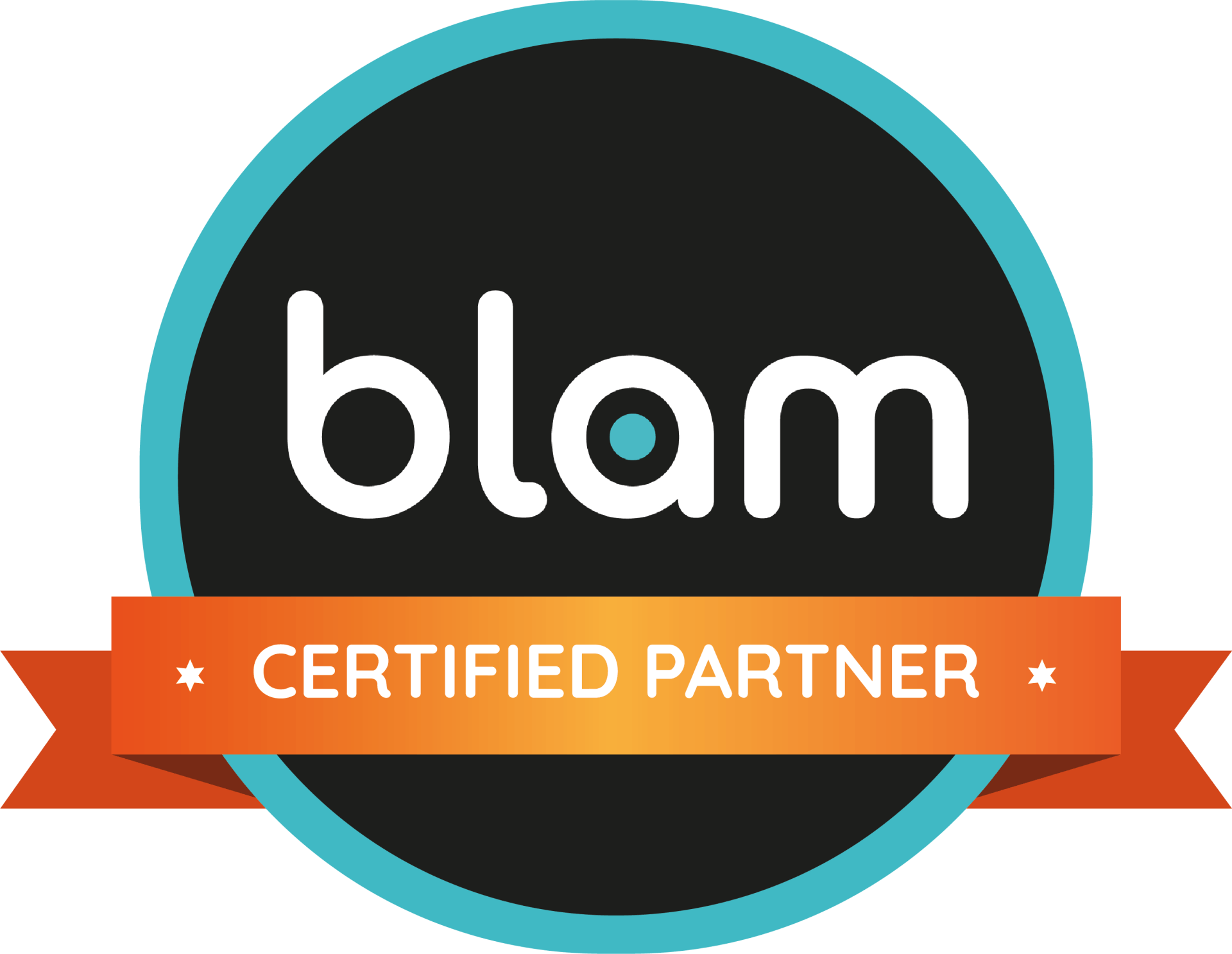The customer Value Journey - Step 6: Ascend
Ascend - Welcome back to our 8-part series on the Customer Value Journey (CVJ) in Digital Marketing! It’s time to move on to the next stage: Ascend.

Welcome back! In the last installment, we covered the Convert stage, where we discussed turning your engaged audience into paying customers. Now, we're moving to the Ascend stage
Imagine you're still hosting that fast becoming legendary party.
Now, you want to take their experience to the next level—imagine offering them an exclusive VIP area or a special gourmet tasting. In the business world, this is where you encourage your customers to ascend, moving from a one-time purchase to higher-value products or services.
Let's look at a business example.
Let's say you own a cozy bookstore in Tipperary. You've successfully converted your casual readers into loyal customers by offering personalized book recommendations and exclusive author meet-and-greet events. Now, you want to encourage them to ascend by offering premium memberships, exclusive book clubs, or special edition books. We're all about repeat business in this stage.
To encourage ascension, you might:
- Premium Memberships: Offer a membership program that provides exclusive benefits such as early access to new releases, discounts, and member-only events.
- Exclusive Services: Provide services like personalized reading lists, one-on-one book consultations, or custom bookbinding.
- Bundle Offers: Create bundles that combine multiple high-value products or services at a discounted price, encouraging customers to make a larger purchase.
- Upsell and Cross-sell: Suggest related products or services that complement the customer's initial purchase. For example, if a customer buys a book, recommend a matching bookmark or a reading lamp.
- Loyalty Programs: Implement a loyalty program that rewards customers for their continued purchases, encouraging them to keep coming back for more.
The 'master maestros' in consultancy at Right Hand Consulting are back with more insights used when working with our clients to help elevate their customers' experiences. Here's some suggestions:
- Share valuable and relevant content that adds to the customer’s experience, like exclusive interviews with authors or behind-the-scenes looks at new book releases. You're aiming to introduce a core product to someone who has already spent with you. They've tried your product, they are learning to trust you as a brand and they might like to spend more with you.
- Use personalized email campaigns to keep customers engaged and informed about upcoming events, new arrivals, and special offers. We're encouraging repeat purchases. You bought this item in May, if you buy it again today we'll do a 3 for 2 offer, or 10% off, offer expires in 24 hours.
- Ensure your website or storefront provides a seamless and enjoyable experience, making it easy for customers to discover and purchase higher-value products.
So, we’re elevating customer experiences, offering premium memberships, and personalizing communication to encourage ascension.
Did you know?
Did you know that businesses that implement loyalty programs see an average 30% increase in customer lifetime value? These stats highlight the importance of fostering strong, long-term relationships with your customers.
Ready to continue your journey? Stay tuned for Part 6, where we'll delve into the Excite stage of the Customer Value Journey. Until then, happy ascending! 🚀

Contact Us












